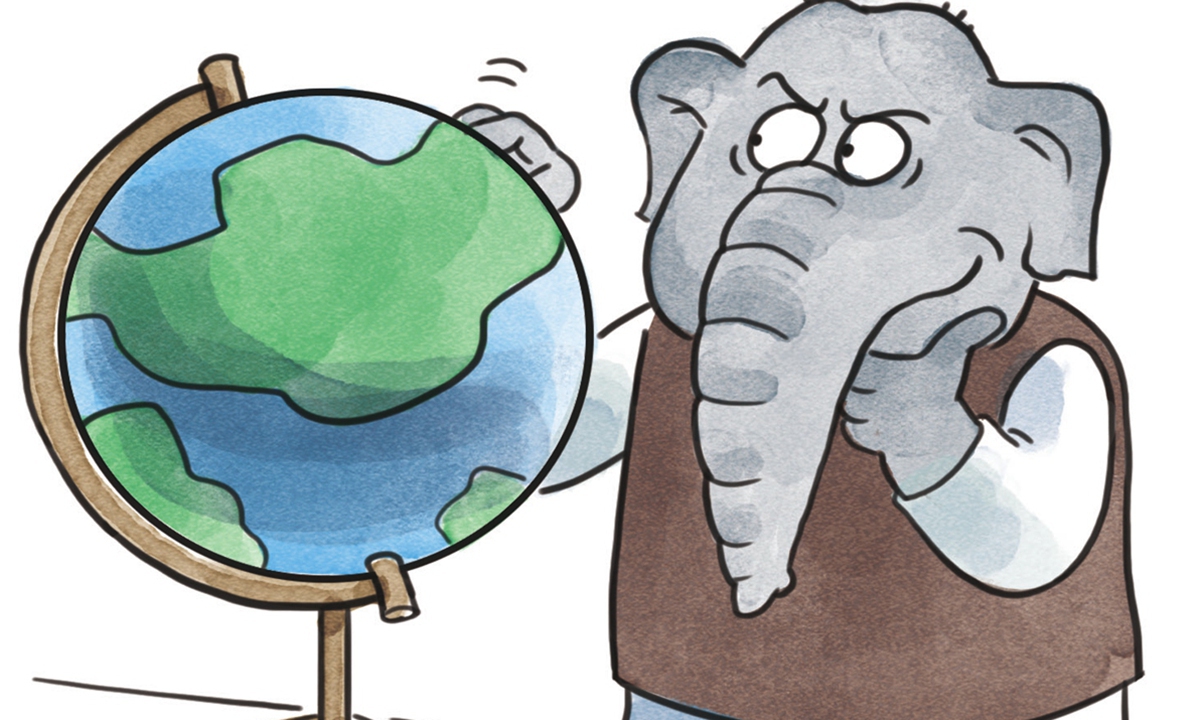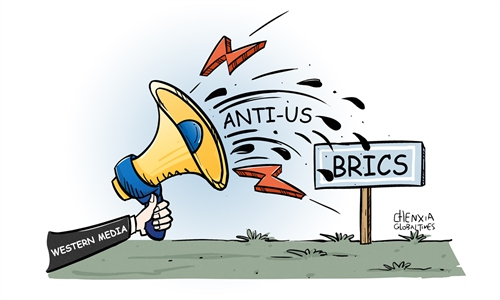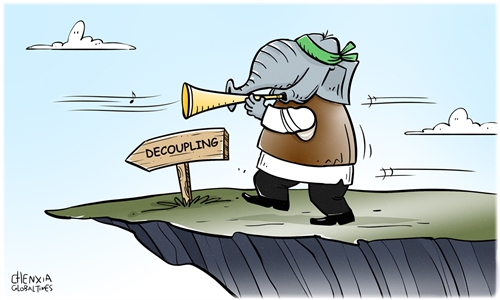India pushes Indo-Pacific region to more troubles under façade of being a balancing factor

India Illustration: Liu Rui/GT
"Pacific Island states and Southeast Asian countries are looking to India as a balancing factor amid growing contestation between China and the US in the Indo-Pacific," Hindustan Times commented on Tuesday. India may need to learn some art of balancing, as its current strategy risks pushing the region further into the shadow of camp confrontation, or even a new cold war.Under the guise of playing a "balancing" role, the headline clearly revealed the true intentions of some Indian elites - "India sees bigger Indo-Pacific role to counter China." The article listed a series of recent Indian moves in the region, such as backing the Philippines in a territorial dispute with China; gifting a warship to Vietnam, another claimant state in the South China Sea disputes; gifting a submarine to Myanmar; sending two military aircraft to Australia for exercises; and dispatching two warships for a visit to Papua New Guinea.
These actions send a dangerous signal, suggesting that India is not only deviating from its traditional Non-Aligned Movement stance, but also openly allying with the US against China by coordinating with Washington's strategy to contain and counter China in the Indo-Pacific region.
It is not an exaggeration to say that India is increasingly aligning itself with the US' Indo-Pacific Strategy. It has participated in Quad and launched Resilient Supply Chain Initiative with Japan and Australia, both of which are aimed at countering China. That seems not enough for India. Despite its historical tendency to avoid involvement in other countries' bilateral disputes, India has chosen to step into the China-Philippines dispute. Previously, New Delhi only acknowledged the outcome of the 2016 South China Sea arbitration award. Yet in the Joint Statement on the 5th India-Philippines Joint Commission on Bilateral Cooperation, issued on June 29, India stressed the need for "adherence to international law," including the 2016 award.
India has overestimated its role. More concerning is that India is not acting as a balancing force. Instead, it is fanning the flames of regional disputes. Be it ASEAN or South Pacific countries, none of them wishes to turn the region into a theater for major power competition. Leaders from South Pacific countries have repeatedly emphasized their intention to foster friendly relations with all major powers. But the tone adopted by the Hindustan Times, as well as experts it quoted, is trying to make the major power game stay, which is not in the interests of regional countries.
India's "Look East" policy was a crucial part of its long-term national strategy. Over time, this policy has evolved into the "Act East" policy, enabling India to further integrate into the Asia-Pacific region. Throughout the process, India has deepened ties with ASEAN, Japan and South Korea. Now, it has set its sights on the South Pacific. However, if it were not for China's cooperation with South Pacific countries, lending a hand to regional development, the US might not have focused so intensely on the region, and India may not have shown interest in the South Pacific, Zhao Gancheng, a research fellow from the Shanghai Institute for International Studies, told the Global Times.
India claims to adhere to non-alignment, but in reality, it has already aligned itself with the US on specific agendas, particularly those related to China, Qian Feng, director of the research department at the National Strategy Institute at Tsinghua University, told the Global Times. India takes current China-US tensions as an opportunity to counter China's influence. As a result, it is drawing increasingly closer to the US, teaming up with the US to create a new cold war atmosphere in the region.
The more India takes an antagonistic stance against China, the sooner a scenario of camp confrontation will take shape in the Indo-Pacific region, and the more damage India will bring to the peaceful and prosperous development of Asia since WWII, Qian warned.
In truth, this hardly resembles a balancing act.
Rather than stirring up troubles in the Indo-Pacific, New Dehli had better focus on itself first. A country's international influence does not stem from efforts to "balance" the global geopolitical landscape, but from one's own development and strength. When India solves its extreme poverty, development disparities, regional unrest and separatist movements, its role and influence will naturally ascend on a global scale, Lan Jianxue, director of the Department of Asia-Pacific Studies at China Institute of International Studies, told the Global Times.


